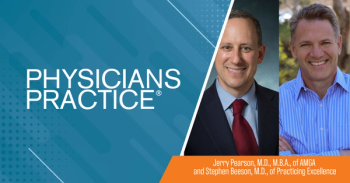
Boston Bombings Highlight Importance of Healthcare Teams
Training and the full utilization of the skills of everyone on the healthcare team is what made the difference in Boston, minimizing death and disability.
The events in Boston stunned the nation this past couple of weeks, and exposed our vulnerabilities as a free and open society. There is no way to fully protect society from these types of deliberate and low-tech attacks. Terrorist attacks are a fact of modern life that are not easily prevented or fixed.
Yet there was much to be proud of regarding the way that the greater Boston community and teams of law enforcement and medical personnel worked together to treat those wounded in the attack and apprehend the people responsible; paramedics, fire, and police who ran toward the sound of explosions to help their fellow human beings. As an ex-paramedic and one who can understand this mentality completely, my hat goes off to those who put themselves in harm's way in an emergency.
Along with law enforcement, a team of medical providers worked tirelessly to treat the wounded as soon as the bombs exploded. Heightened awareness of mass casualty situations since 9/11 has prompted many major metropolitan areas to review and improve their disaster planning and response. Clearly, Boston area hospitals had taken this responsibility seriously and had developed plans that flat worked.
A physician who leads an ED team at a major Boston hospital said that, in essence, the staff went into auto-response mode. As he went from the door of the ER to the trauma bays, all the teams were functioning independently and synergistically - just as they were trained to do.
It’s amazing given that the sheer number of people involved were able to coordinate efforts so seamlessly to treat the wounded and apprehend those responsible. The onsite tents along the 26-plus mile route were staffed with 800 physicians, physician assistants, and nurses. They rapidly became triage central at the finish line as the injuries went from dehydration and orthopedic complaints during the race to severed limbs and traumatic wounds from the bombs.
Within an hour of the attacks, the most critically injured patients arrived at Boston area hospitals and were met by teams of physicians, PAs, NPs, nurses, and other hospital professionals. From training and experience, they cleared space in the ER and organized themselves into teams to triage the constant inflow of the injured, and began life-saving evaluation and treatment of a variety of injuries that can be expected from the type of crude bombs used in this attack.
The number and variety of injuries created by such a crude bomb is astounding. However, what was more amazing is how emergency healthcare teams, from the finish line of the marathon to the hospital environment, responded to save every life that could be saved. Training and the full utilization of the skills of everyone on the healthcare team, is what made the difference in Boston, and what minimized the death and disability to the lowest level possible. These lessons, learned from war and disaster, have been learned well by our healthcare professionals if Boston can be held up as an example.
There are lessons in this tragedy that can be applied to other non-emergent areas of the healthcare system, and that is that the team practice of medicine can improve survival, health outcomes, and reduce costs. When everyone is pulling together, and allowed to practice at the top of their training and experience, we can meet the demands of providing affordable and accessible healthcare to all Americans.
PAs get this. Our profession was born on the battle fields of South East Asia, and have always functioned in teams. We have internalized team practice since the 1960s, and have always understood that the whole is always greater than the sum of the parts. If there can be any good that comes from disasters, or mass casualty situations such as the one we just experienced at the Boston Marathon, then it is a reaffirmation of this concept, and a refocusing as to how we structure the delivery of healthcare in the United States.
This blog was provided in partnership with the
Newsletter
Optimize your practice with the Physicians Practice newsletter, offering management pearls, leadership tips, and business strategies tailored for practice administrators and physicians of any specialty.








